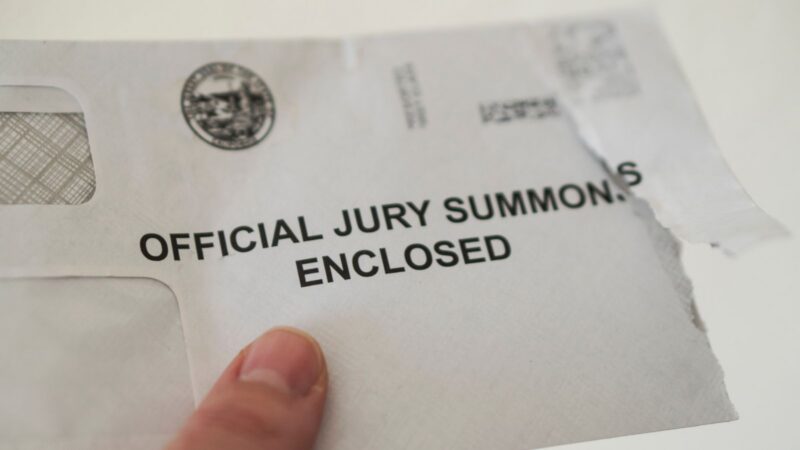What federal workers can do to protect themselves
- February 6, 2025
Resources for navigating attacks on the federal workforce

In the first two weeks of his second administration, President Trump has issued a slew of executive actions targeting federal employees, including a revised Schedule P/C (formerly known as Schedule F) order. These actions have caused the removal, reassignment, and resignation of non-partisan and career officials entrusted to serve the American people. The result has been chaos for current and former civil servants. Protect Democracy offers resources and explainers for anyone concerned about the current administration’s attacks on the federal workforce.
For the most up-to-date information, check out the most recent volumes of our Dear Civil Servant newsletter. For the most up-to-date information, check out the most recent volumes of our Dear Civil Servant newsletter.
Actions to take ASAP
1. Download your personnel and benefits documents.
These documents can be much harder to access after your leave. Some employees are getting locked out of their phones and computers as soon as they are given notice of a personnel action:
- Your entire eOPF file, including performance reviews
- A copy of your position description (ask your immediate supervisor or HR for a copy, if you don’t have one)
- Your 2025 Active Plan from USA Performance
- Benefits documents under the personal info tab of your EPP file
Ensure you are able to log into benefits programs such as TSP, FSA Feds, Long Term Care Insurance Program, and BENEFEDS from your personal device and that authentication methods don’t require you to use your work email or device. Download all important documents and handbooks that detail your coverage (e.g. the FEGLI handbook).
To learn more about what you can do to protect yourself, including strengthening your privacy and security, read our first Dear Civil Servant letter.
2. Also make sure to:
- Remove any personal documents from your work computer, and
- Exchange personal contact information with your colleagues, in case you need to contact them for a reference or to let them know about an unanticipated termination.
Knowing your rights
Employment protection overviews
These resources provide overviews of your substantive and procedural employee protections, as well as the process for challenging violations of those protections.
- Merit Systems Protections Board Trainings Page and list of Prohibited Personnel Practices
- Office of Special Counsel, Know Your Rights When Reporting Wrongs Pamphlet
- Equal Employment Opportunity Commission Overview of Federal Sector EEO Complaint Process
Many employee rights differ based on your role and employment status.
- Review the website Reading your SF-50 to determine your service and appointment type to better understand your role.
- You can also understand your employment status (for example, whether or not you are a probationary employee) by reviewing documents in your eOPF or asking HR professionals to confirm your status.
More resources on legal protections for federal employees
Explainer: Resign or Be Fired? Explainer: Resign or Be Fired?
NEW from Protect Democracy: The Mass Removal of Probationary Federal Employees Is an Unlawful Reduction in Force NEW from Protect Democracy: The Mass Removal of Probationary Federal Employees Is an Unlawful Reduction in Force
NEW from Protect Democracy: Understanding the Termination of Federal Probationary Employees and Their Rights NEW from Protect Democracy: Understanding the Termination of Federal Probationary Employees and Their Rights
Guide on what probationary employees need to know (Just Security) Guide on what probationary employees need to know
Guides on truth-telling for federal employees, public interest organizations, and journalists. (Government Accountability Project) Guides on truth-telling for federal employees, public interest organizations, and journalists.
Explainer on employees’ rights and duties to refuse to obey illegal orders (Government Accountability Project) Explainer on employees’ rights and duties to refuse to obey illegal orders
Resources for Whistleblowers (House Office of the Whistleblower Ombuds) Resources for Whistleblowers
Caught Between Conscience and Career: A Guide for Federal Government Whistleblowers (Project on Government Oversight) Caught Between Conscience and Career: A Guide for Federal Government Whistleblowers
Know Your Rights webinar series (Partnership for Public Service) Know Your Rights webinar series
Guide to Federal Employee Speech and The First Amendment (ACLU) Guide to Federal Employee Speech and The First Amendment
Readiness and Resilience-Building Resources (Democracy Protection Network) Readiness and Resilience-Building Resources
Organizations supporting civil servants
If you are a current or former federal employee in need of information or help, many organizations offer specific resources and services to support you. The resources you need will depend on your particular situation and concern.

Civil Service Strong website
Resources for civil servants if they are targeted or attacked
Finding legal counsel
If you need legal counsel, the following will have resources for finding attorneys:
- National Employment Lawyers Association
- Metropolitan Washington Employment Lawyers Association
- Federal Circuit Bar Association
To find out if you are eligible for representation by the Government Accountability Project, complete their intake application.
Relevant litigation and why the civil service mattersRelevant litigation and why the civil service matters
Keep track of current litigation related to the civil service.
Litigation Tracker (Just Security) Litigation Tracker
Protect Democracy's Schedule P/C (formerly known as Schedule F) litigation Protect Democracy's Schedule P/C (formerly known as Schedule F) litigation
Learn more about why a non-partisan civil service is crucial for democracy.
The civil service, explained The civil service, explained
A comprehensive history of the development of the non-partisan civils service and Congress’ role in protecting it (Protect Democracy comment to OPM, November 2023) A comprehensive history of the development of the non-partisan civils service and Congress’ role in protecting it
The Corruption Playbook by Walter M. Shaub, Jr. The Corruption Playbook
Can we still govern? (Substack from Don Moynihan) Can we still govern?
The information on this page should not be construed as legal advice on any specific facts or circumstances. The contents are intended for general information and educational purposes only, and should not be relied on as if it were advice about a particular fact situation. The distribution of this document is not intended to create, and receipt of it does not constitute, an attorney-client relationship. This publication also contains hypertext links to information created and maintained by other entities. There is no guarantee of the accuracy or completeness of this outside information, nor is the inclusion of a link to be intended as an endorsement of those outside sites.
Related Content
Join Us.
Building a stronger, more resilient democracy is possible, but we can’t do it alone. Become part of the fight today.
Donate
Sign Up for Updates Sign Up for Updates
Explore Careers Explore Careers
How to Protect Democracy How to Protect Democracy







